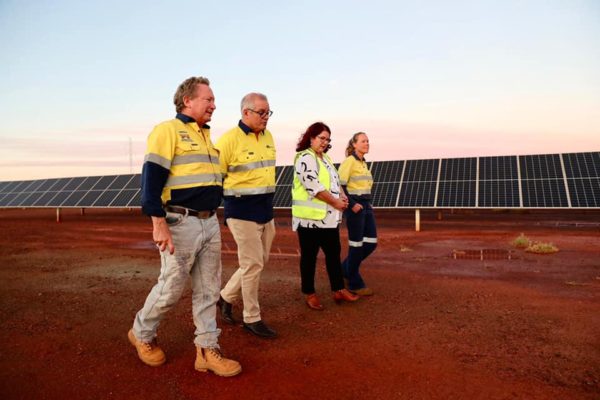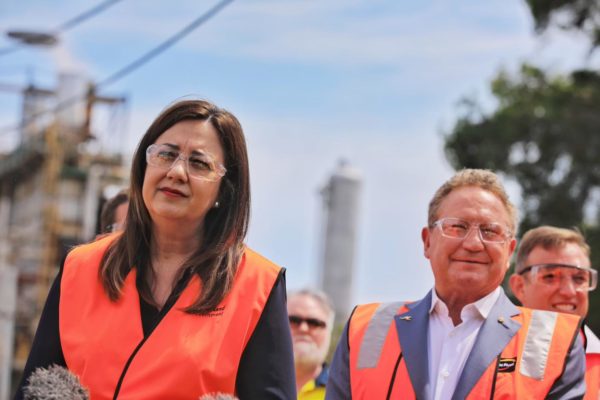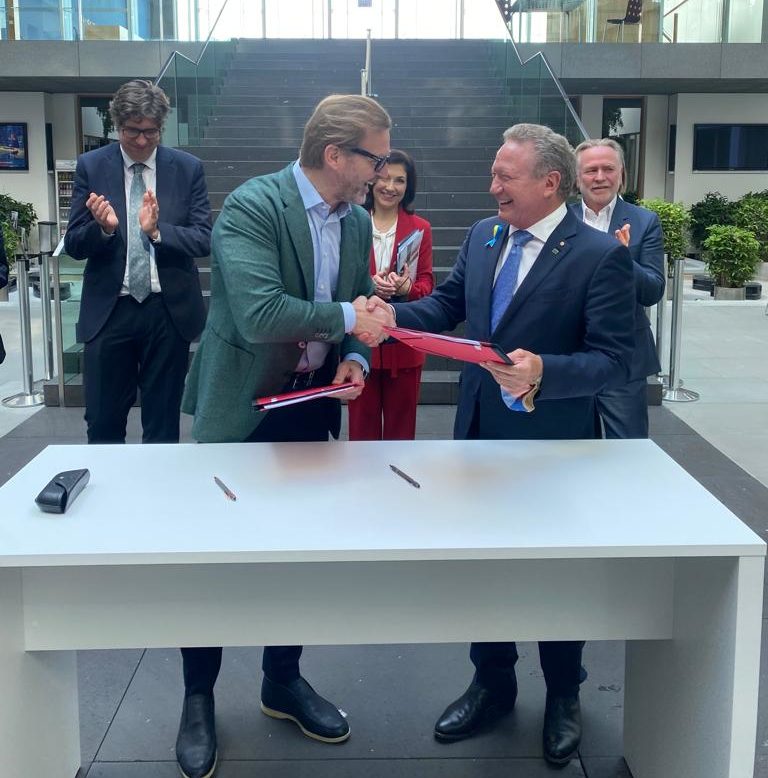Describing the deal as “one of the world’s largest energy agreements,” Fortescue magnate ‘Twiggy’ Forrest is setting Fortescue Future Industries (FFI) on a path to deliver approximately one third of the calorific energy intake Germany currently imports from Russia.
The green, renewable hydrogen will primarily be produced in Australia and shipped to Germany in the form of ammonia, though the company did flag it plans to incorporate “FFI’s other planned global projects,” of which there are many.
Both companies say they want to hit the five million tonne target “as soon as possible,” with the decade’s end seemingly the deadline. Germany, by far the largest economy in Europe, imports over 60% of its energy demand, the bulk of which comes from Russia. The country has been badly caught out by Russia’s invasion of Ukraine, a factor Forrest emphasised during his press conference – saying dictators will “always let you down” and emphasising the political ties between Germany and Australia.
Our team are in Berlin, about to make a major announcement about how #GreenHydrogen will help deliver #EnergySecurity for Europe. Tune in ⬇️https://t.co/yMC2QWhdRc
— Fortescue Future Industries (@FortescueFuture) March 29, 2022
When it comes to hydrogen – an important future energy source for Germany as an industry-heavy economy – the relationship between the two nations has been developing for quite some time. Earlier this month it was elevated by our respective governments launching a $125 million joint fund to develop hydrogen projects linking Australia and Germany.
The extent of this particular deal, however, blows the fund out of the water with Forrest pointing to a minimum investment figure of $50 billion.
Forrest is confident Fortescue will be able to deliver on the mammoth task given its capital success in the iron ore industry. “We’re now in a position as a very strong company to launch this brave endeavour,” he said.
To make five million tonnes of green hydrogen would require multiple tens of gigawatts of electricity – something Forrest pointed out Australia has the natural resources to deliver. “We have enough energy in Australia from a tiny, tiny fraction of our landmass to power all the world,” he said.

Image: Scott Morrison / Facebook
E.ON has around 50 million customers, primarily in Germany and the Netherlands, to whom FFI’s green hydrogen will be delivered with a specific focus on “medium-sized industrial customers in the regions,” which is where E.ON’s COO Patrick Lammers said the company is expecting the most hydrogen demand.
Lammers and Forrest signed the memorandum of understanding overnight in Berlin, joined by Michael Kellner, Germany’s Parliamentary State Secretary at the Federal Ministry for Economic Affairs and Climate Action and Australia’s Ambassador to Germany, Philip Green.
As per the agreement, both companies have committed to a research and study partnership, “with further detailed documentation and steps required related to supply.”
With a company target to produce 15 million tonnes of green hydrogen by 2030, FFI has spent the last year making moves to vertically integrate itself. It plans to open the world’s largest electrolyser production plant in Queensland, which appears to be powering ahead having already gained state government approval and network operator cooperation.

Image: Facebook
The company is also planning to build a 1 GW solar PV module manufacturing plant, presumably also in Queensland though the location has not been confirmed.
Fortescue is quickly becoming one of the biggest, if not the biggest, prospective green hydrogen producer in the world. It has been churning out partnership deals at an equally rapid pace, announcing a deal with aviation giant Airbus little over a fortnight ago.
This content is protected by copyright and may not be reused. If you want to cooperate with us and would like to reuse some of our content, please contact: editors@pv-magazine.com.









3 comments
By submitting this form you agree to pv magazine using your data for the purposes of publishing your comment.
Your personal data will only be disclosed or otherwise transmitted to third parties for the purposes of spam filtering or if this is necessary for technical maintenance of the website. Any other transfer to third parties will not take place unless this is justified on the basis of applicable data protection regulations or if pv magazine is legally obliged to do so.
You may revoke this consent at any time with effect for the future, in which case your personal data will be deleted immediately. Otherwise, your data will be deleted if pv magazine has processed your request or the purpose of data storage is fulfilled.
Further information on data privacy can be found in our Data Protection Policy.